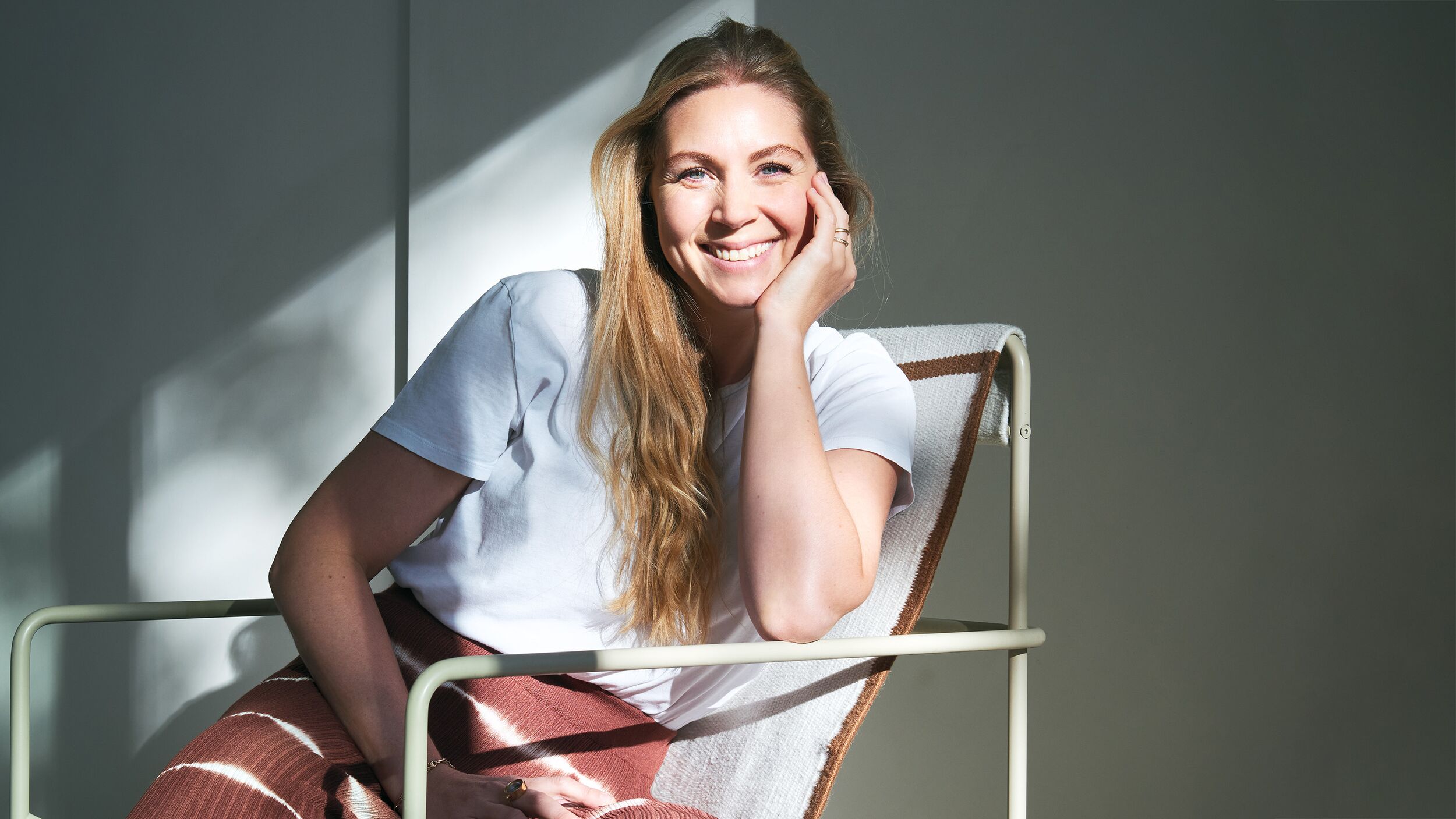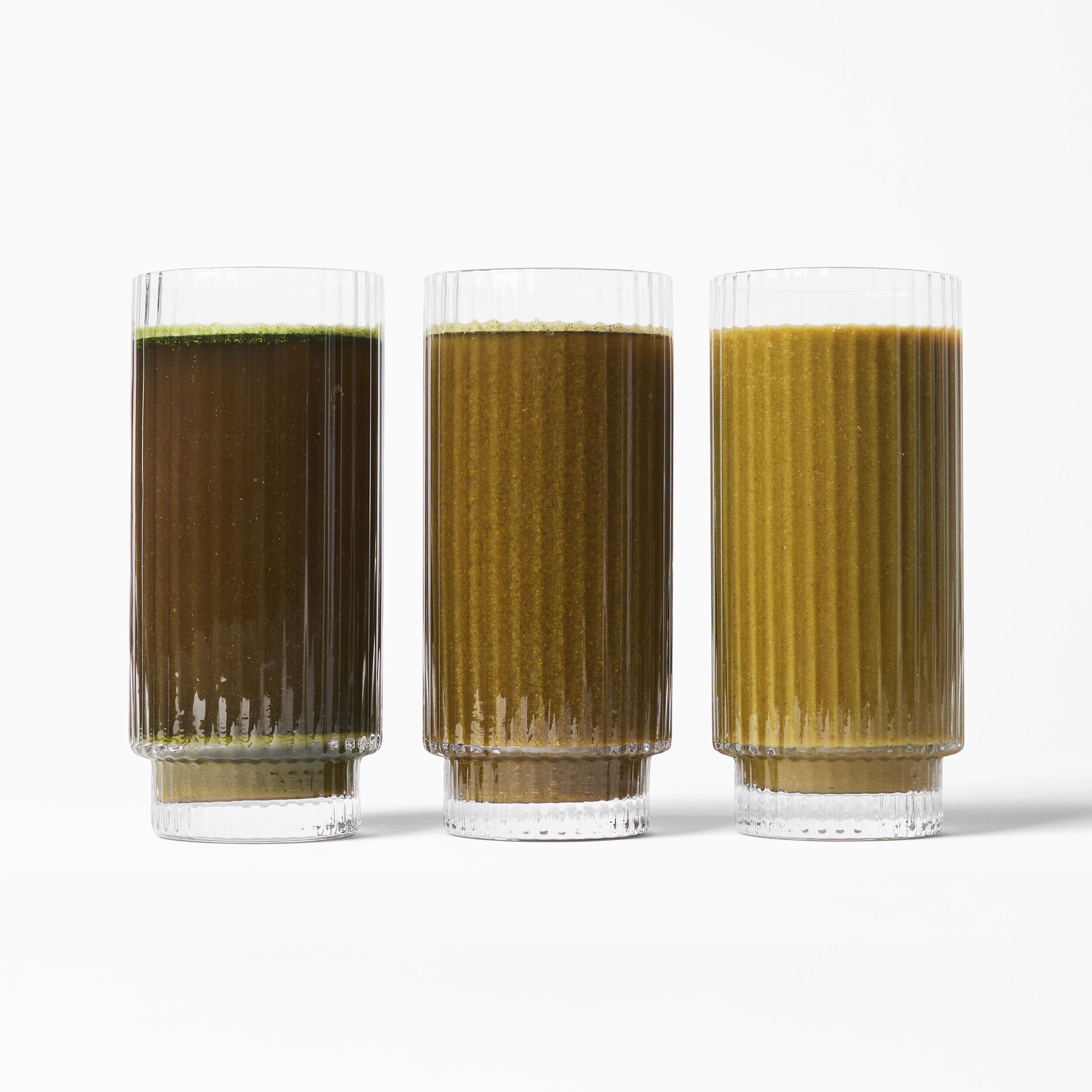Life Coach Lily Silverton on Priorities, Recognising Burnout and Daily Habits
Written by Lottie Winter
2 Dec 2024

After realising the life-changing power of putting priorities at the forefront of all of her coaching, mindset & life coach and stress management consultant Lily Silverton created The Priorities Method™ - a unique method to build sustainable, lasting change while allowing for the complexities of life. Here, she sits down with Beauty Pie to discuss how to identify your priorities, the symptoms of burnout and her ultimate piece of life advice...
The Priorities Method (TPM) is all about making time for what’s important to you. But how do you figure out what your priorities are in the first place?
So many of us – myself included in the past – go through life without really thinking about our priorities. If that’s you, then awareness and curiosity are always the best place to start. With TPM I encourage clients to do a holistic life audit, so they have a judgement free picture of where they’re at, and then consider deeply what brings them joy and purpose, as well as the simple question of who and what is important to them.
Thinking about your values and principles is a good place for decluttering the noise of daily life – but there exists within us all a push-pull between what matters to us in the day-to-day and what matters to us in the long term. Organising your life so that those are reasonably aligned is a life-long exercise on figuring out and living in line with your priorities.
Why is physical health so important to overall wellbeing and “success” (whatever that looks like for you!)?
Wellbeing is a very broad term and can mean so many different things to different people at different points in life. For me, at the moment, physical health is really important, but I’m aware I arrive at that standpoint from an able-bodied perspective.
I think generally that taking care of your physical health (which is much more about how you feel internally than what you look like on the outside!) is a way of showing up for and supporting yourself that can really bolster your sense of wellbeing and “success”. It’s a win for your psyche. There’s also the proven symbiosis between your physical and mental immunity and the mind-gut connection and how those two are interlinked and affect one another.
Stress and lack of sleep are endemic in modern life. What are the signs of burnout?
Modern life is a lot – the demands, choices, information, distractions… plus, as you say, the lack of sleep (or rest) and an ancient stress response system that doesn’t understand how to navigate 21st century living.
Burnout is defined as a state of physical, mental and emotional exhaustion caused by prolonged and chronic stress. But, unlike stress, it isn’t characterised by feeling like things are too much, instead people experiencing burnout tend to feel quite empty – as if things have lost their shine in all areas of life.
Warning signs to look out for in yourself or loved ones include: feeling tired and drained all the time, frequent unexplained headaches or muscle pain, changes in appetite or sleep patterns, feeling helpless or defeated, a loss of motivation and satisfaction, procrastination, isolating oneself and also abusing food, drugs or alcohol. All these things are normal experiences to have in our demanding, busy lives but if experienced near-continuously and together they indicate something bigger is going on.
In the immediate, if you’re able to take a break from whatever the main cause (there will be multiple but generally one is the primary driver) of the burnout then do that as soon as possible. And while ultimately what we need is systemic change to the way we work and live, it's then up to the individual to find ways to cope and prevent burnout.
Setting and sticking to boundaries for yourself really helps avoid burnout.
It’s about developing the tools to support yourself as best as possible, doing things that you know increase your wellbeing, improving your mental resilience and finding the more effective techniques or systems for navigating periods of stress. Don’t ignore your difficulties but also don’t let them become your entire reality, stop trying to control other people’s behaviour (a huge source of stress for us all) and reconnect with the things that bring your purpose and joy.
Try to stick to simple but helpful habits like enough rest, adequate nutrition and practicing as much self-compassion as possible. Oh and, above all else, take time away from your phone every day – either on airplane mode or do not disturb. Setting and sticking to boundaries for yourself really helps avoid burnout.
Do you have any daily habits that help you achieve your goals?
I start the day with a big glass of water with vitamin C and take Vitamin D, B12 and more recently have been trying out Beauty Pie For Jugglers Supplements! I tend to do some sort of movement every day – an online pilates/yoga session, a long walk or short run, or a swim in the Ladies Pond or Lido (I go all year round, in the winter it’s just a dip!)
I try and eat healthily, with some sort of protein, fresh fruit and vegetables, rice or potatoes (but last week my husband and I both had a lot of work on so most nights we had canned soup or ramen from packet noodles!). Oh and I try to have something fermented for my gut health every day so I add kimchi or sauerkraut.
My daily mantra is – you’ll never complete your to-do list. Reminding myself that I can’t do it all helps me feel less overwhelmed, prioritise the things that are truly important and not worry (too much) when I drop the ball.
If you could give everyone one piece of advice, what would it be?
To challenge your thoughts! I had really bad mental health when I was younger and I took all of my negative, self-critical thoughts at face-value believing them to be fact. But your thoughts aren’t facts, they’re just your interpretation of the world (which is sometimes way off the mark). Because of how our brains work, it’s easy to find ourselves stuck in thought patterns and habits that are harmful, but we don’t change them because we don’t think to challenge what’s going on in our minds!
In a stressful or difficult situation, I recommend asking yourself whether your thoughts are helping you move through whatever is happening with greater ease and compassion, or if they’re just making you feel more stressed. Often it’s the later, so it’s about asking yourself whether there’s a more helpful or neutral thought you could be thinking at that moment in time. At first challenging your thoughts is really hard, but like anything, the more you do it the easier and more instinctive it becomes.


